The Human and Animal Institute was founded in 2020 to develop people's ability to discern the needs and the value of others, regardless of their status, and to live with them in peace. The main goal of the Institute's activity is to change the prevailing attitude in the public towards the weak and different, and in particular towards animals: from dominance to partnership and reciprocity. The Institute's work takes place in close cooperation with various organizations and institutions, and it focuses on the professional public whose work is based on contact with a large public of students, patients, etc., or with many animals. The Institute's activity is divided into three areas – all directly related to education:
1. Developing new curricula
2. Training of professionals
3. Intervention in conflicts between humans and animals
Developing new curricula
The Human and Animal Institute's curricula are designed to develop students' ability to see others – humans and animals alike – as complex, sensitive, and valuable subjects, to feel empathy and compassion for them, and to maintain respectful and reciprocal relationships with them. The programs are also designed to instill in students an understanding of the social systems responsible for harming animals and encourage students to make their way as partners and even as leaders in planning and implementing solutions. Each program is prepared and scheduled with precision. Nevertheless, the rich curriculum material allows each unit of study to be expanded in the classroom and spread out over an extended period, as is indeed the case in the field. All Human and Animal Institute programs are presented to the general public free of charge.
Animals with Us
Animals with Us (double meaning in Hebrew: Animals with Us and Living with Us) is a curriculum for elementary school – the leading program in Israel on the subject of animal emotions. This is the product of joint work with the Center for Educational Technology (CET) in the framework of science studies; nevertheless, the program is also well adapted for classroom education and life skills classes. Animals with Us is divided into two parts: 6 units of study for grades 2-3 (2021), and 5 units of study for grades 4-5 (2023).
Animals with Us is receiving an extraordinary level of distribution. By the summer of 2024, an automatic tracking system had registered enrollment in the program from about 2,000 schools (approximately 70% of elementary schools in the Jewish sector in Israel), including about a thousand schools in which classroom activity was registered. This includes teachers and/or students from approximately 13,000 different classrooms (about one-third of the classrooms in the Jewish sector in elementary schools in Israel).
Resilience with Animals
In 2024, in response to the October 7 massacre and the war that followed, and also in the wake of the COVID-19 pandemic, the Human and Animal Institute developed the program Resilience with Animals: Social-Emotional Learning about Animals with an Emphasis on Developing Emotional Resilience in Emergencies in Elementary School-Aged Children. The program was produced in collaboration with the Teva HaKesher Farm (a social-educational farm for the rescue and rehabilitation of animals) and it includes 5 learning units. The lesson plans combine accepted practice for strengthening mental resilience and original stories and practice materials about animals dealing with situations similar to the emergencies endured by the students. The Resilience with Animals program is recognized in the Geffen system – in the category Trauma, Mourning, and Bereavement, program No. 25045. By November 2024, interest in the program from approximately 4,000 professionals had been registered on the institute's website.

Living in Peace with Swallows
The Human and Animal Institute is leading a groundbreaking project that combines theoretical learning on wildlife protection with the mobilization of students and teaching staff as part of a practical solution in the community. The project’s topic is coexistence with swallows – a common and important issue in all populated areas of Israel, which has so far slipped “under the radar” of nature conservation and animal protection organizations. The main activity in the classroom is preparing POOPLETS – small and very light shelves that collect droppings and mud under nests, and at the same time serve as information signs. The complete work plan is presented in a video – Living in Peace with Swallows: Preparing Pooplets in the Classroom and Using Pooplets in the Field (March 2024). The video is intended for both formal classrooms and informal training settings – from classes to homeschooling, for different ages; the film also has a section for the community outside school. In addition to the major video, teachers may watch an extended lecture and use additional informational materials. The scope of viewing Living in Peace with Swallows is approaching two thousand different users, including educators who followed the program. The video appears in search engines as one of the first search results for words such as "snunit" ("swallow" in Hebrew).
(A full curriculum in one video; recommended: click YouTube menu for English subtitles)
Meeting Animals with Words
Many children meet animals in captivity – in an animal shelter, at a rescue farm, etc. The encounter in such situations can be quick and superficial. To equip education teams with the tools to establish a deeper and more respectful acquaintance with animals in captivity, we created the program Meeting Animals with Words: Planning Educational Aids for Mutual Encounters Between Us and Animals (October 2022). The program provides instructions for creating flashcards and worksheets that guide and encourage children to facilitate responsible partnerships and friendships with animals. The training materials were used by about a hundred professionals. In some locations, the Human and Animal Institute team accompanied the local education team in creating educational aids specifically adapted to a specific facility (since 2021).
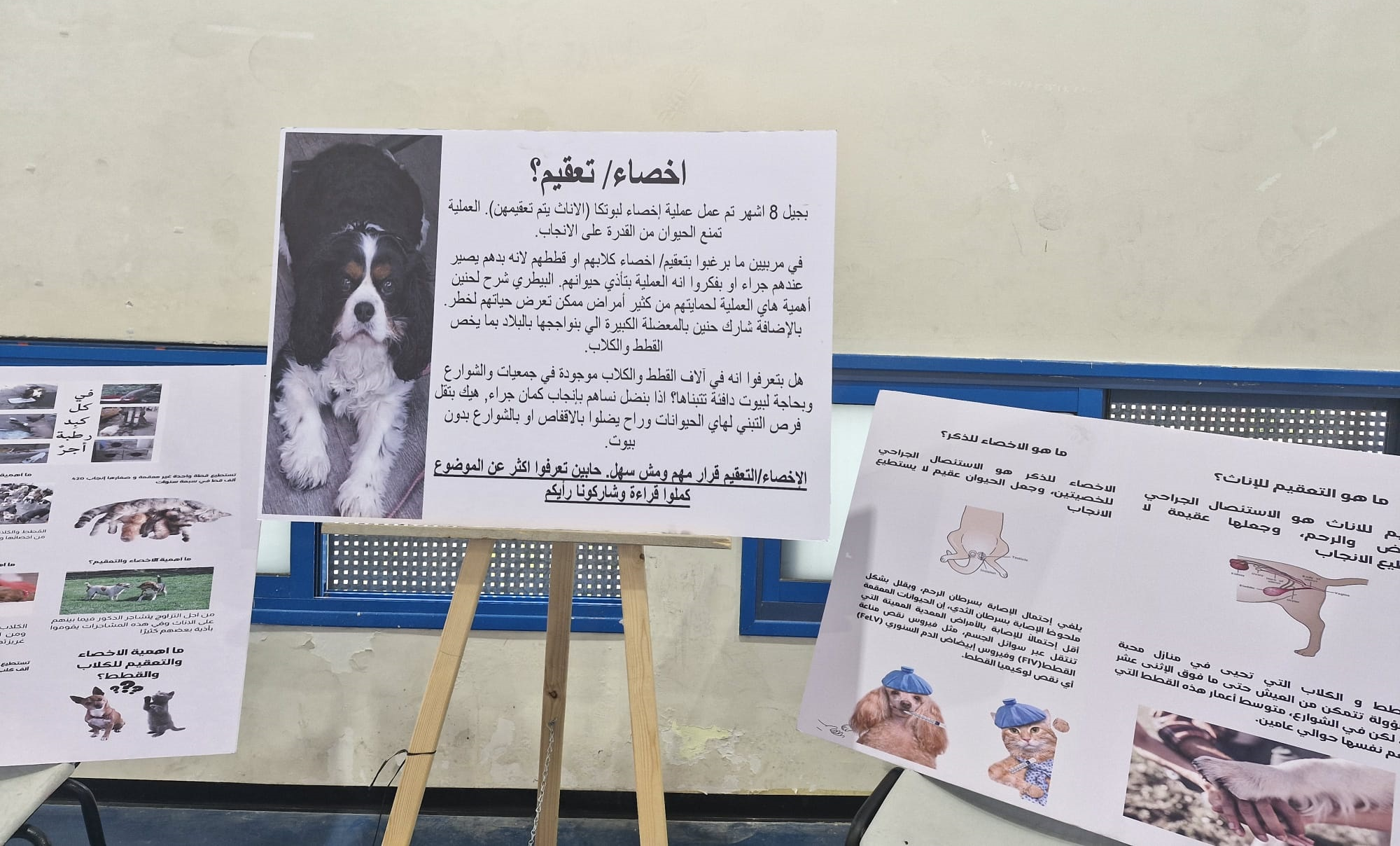
Created by: Rotem Tadmor-Sade (Human and Animal Institute) and Hanin Mahamid Agbariya (Al-Razi Comprehensive School)
Training professionals
In parallel with creating educational programs, the Human and Animal Institute is engaged in training professionals who impact animals directly, in various fields of education and care and in non-profit organizations. Most of the Institute's professional training work relates to its educational programs.
Training
Pisga Centers are regional centers that train teaching staff in the education system. Courses at Pisga Centers are recognized by the Ministry of Education. A typical course includes 30 hours of study. The Human and Animal Institute has so far held three training courses at Pisga Centers, on the topic of "Children and Animals in a Mutual Approach: Social-Emotional Skills (SEL)" (under a slightly different title in each cycle). The first cycle was a joint activity of the Human and Animal Institute, Lev Pisga (the Directorate of Settlement Education), and the Hadassah Youth Village (Spring 2022). The next two cycles were held in cooperation between the Human and Animal Institute and the Pisga Center Ramat Gan. Each cycle was attended by about 25 elementary school teachers, as well as emotional therapists from various fields (animal-assisted therapy and art therapy) and kindergarten teachers.
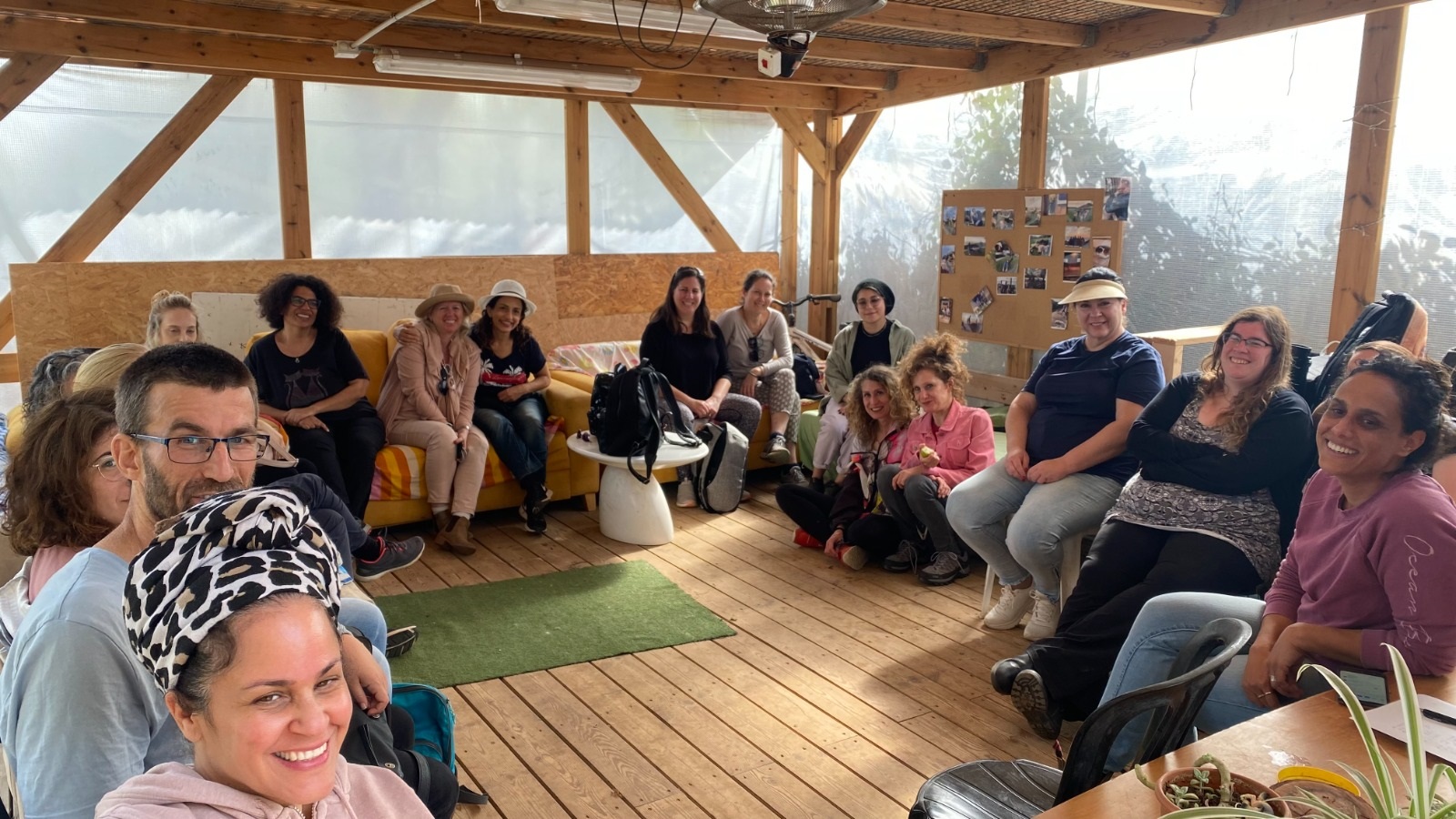
Training on the Human and Animal Institute programs, as well as professional enrichment, is held systematically during the school year, in the format of online evening meetings for educators from schools and other educational and treatment settings. The 2023-4 program included 12 meetings and was interrupted following the October 7 massacre and the war. The 2024-5 program, under the title Student and Animal Relations (course program; course summary), includes 30 hours of study, and approximately 160 people enrolled in it; this series is organized in the format of Ministry of Education training courses, and several of the participants received recognition for training reward.
A Trauma Therapy Course is held at the Paamoney Ruach Association, as a joint venture with the Human and Animal Institute. The training (40 hours of study) is intended for therapists, and it is focused on the encounter between people who have experienced trauma and animals who have experienced trauma, for example at animal rehabilitation centers. Three cycles of the training took place between 2022-4, with the participation of approximately 10 therapists in each cycle.
The Snoopy in the Therapy Room Course is being held at the initiative of the Dialogue with Animals organization, as a joint venture with the Human and Animal Institute and the Berlowitz Foundation. The training is intended for therapists who are interested in including a dog in their therapy sessions. The first cycle of the training (46 hours of study) took place in the spring of 2024 with the participation of 12 professionals.
The Winged Neighbors project is a school training course about coexistence with birds in the school environment and the residential environment, with an emphasis on coexistence with swallows. A cycle of this course (6 hours of study) took place at Yitzhak Shamir Ecological School in Yavneh, with the entire staff (2021).
Working group on keeping animals in captivity
In January 2021, a training and collaboration group for management teams of school and community zoos and animal shelters began operating under the guidance of the Human and Animal Institute: Leaders of the Revolution. Group meetings are held once every two weeks, and once every two weeks personal guidance or consultation is held in small groups. The group includes about 12 owners and managers of facilities that keep animals.
As part of the joint work, the group created a book: Reciprocal Meetings: In Practice, Basic Principles, Dilemmas and Ways of Working to Realize a Beneficial Relationship with Animals (Human and Animal Institute, 2023). By the fall of 2024, the book had been distributed in 150 copies. The group also produced a guide to caring for captive rabbits, and signs for scool and community zoos.
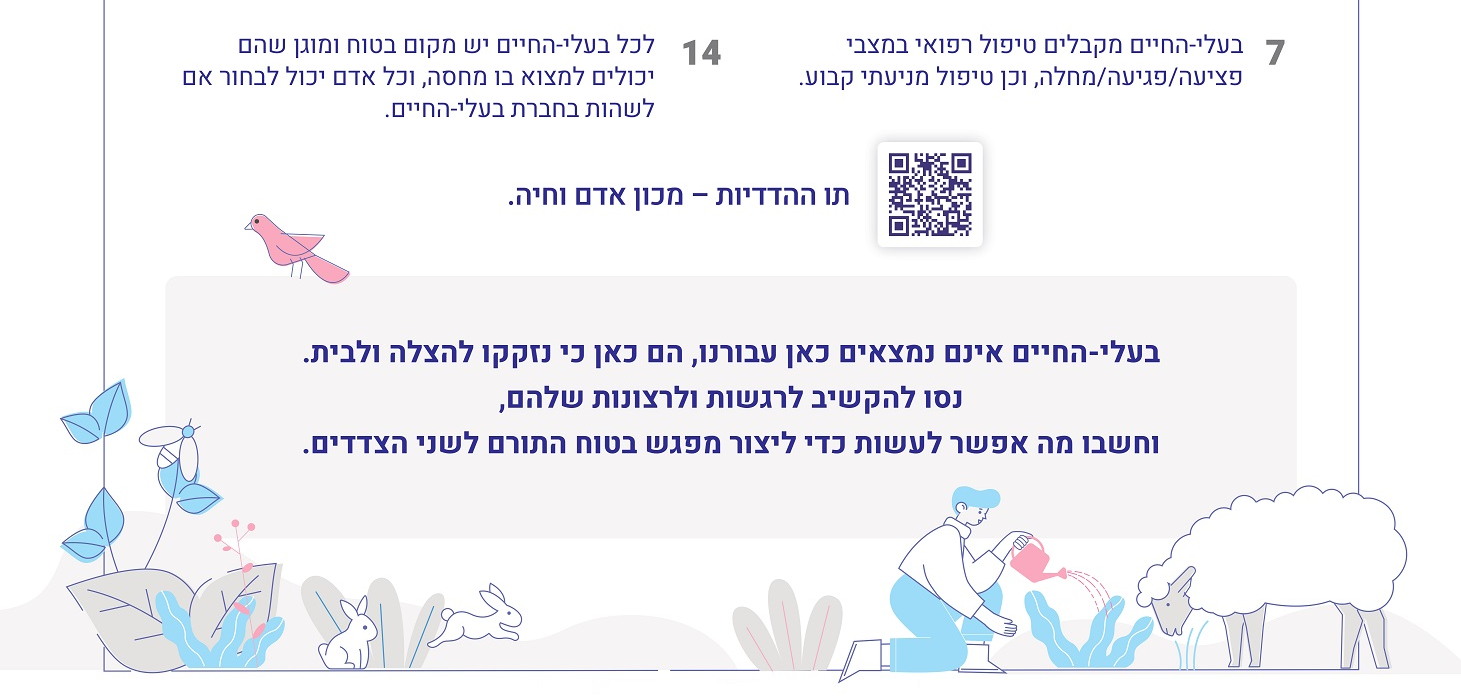
Empowerment and professionalization for activists
Hai-Zoom (double meaning in Hebrew: alive-zoom and animal-zoom): This is an organizational consulting project for individuals who function as an animal welfare organization, and for young and small animal welfare organizations. The lecturers at the Hai-Zoom workshops are experts in their field. Between December 2021 and February 2023, 3 Hai-Zoom series of workshops were held, on the topics of: general public mobilization; fundraising for animals; and animals in law and justice. Each series consisted of 12 hours of study, and dozens of activities and activists participated in each session.
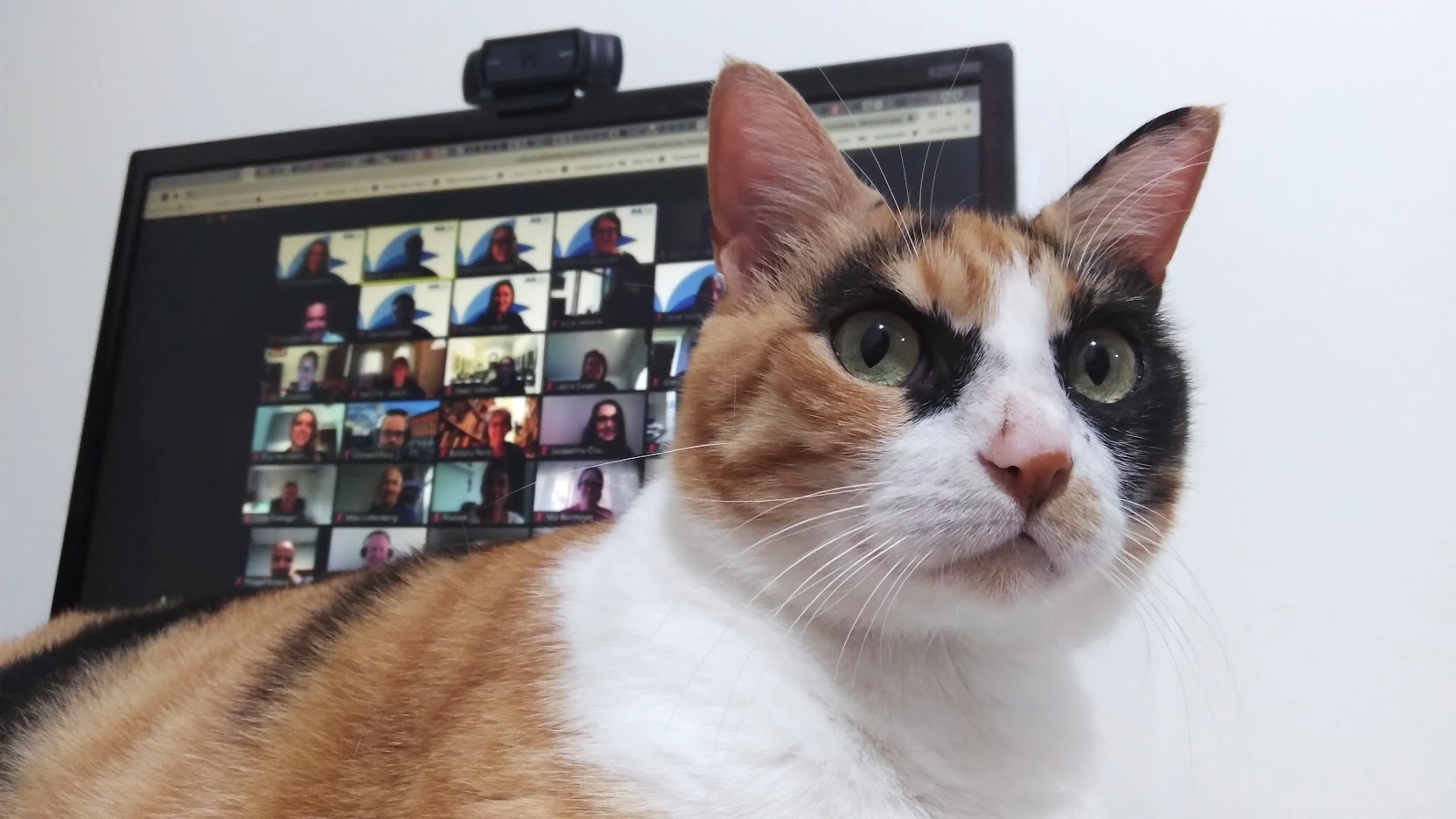
Live Writing (double meaning in Hebrew: writing live and writing animal): This is a project to guide animal rights activists in writing articles and essays intended for advertising and educating the public. The project took place in the summer of 2022, with the participation of about 15 people. Hundreds of additional users used the training materials that accompanied the project.
Training of therapists at Oranim College
A training program for therapists in the presence of animals is held at the Oranim Academic College of Education and in collaboration with the Hadassah Neurim Village, and also with the Human and Animal Institute. This is an exceptional program in the Animal-Assisted Therapy profession, managed with the aim of giving equal weight to the well-being of the person being treated and the well-being of the animal involved in the treatment ("relational approach"). It is a three-year program for students with bachelor's degrees. It was developed on the basis of a training program that has been operating at the college since 2002, and its graduates receive a certificate of "Emotional Therapist Assisted by Animals in a Relational Approach" (the program on Oranim College website). The Human and Animal Institute produces professional resources for the Oranim curriculum; these resources are open to all and are used by hundreds of students and professionals from all over the country.
Intervention in human-animal conflicts
The Human and Animal Institute addresses several areas of human-animal conflict, closely related to the Institute's educational activities. In all areas, we make an effort to recognize the exploitation of animals, their harm, and their rights, while at the same time we work with the people who are involved in the conflict and assist them in promoting their interests – as a means of mitigating the conflict most effectively.
Swallows in residential and business areas
The Human and Animal Institute develops and distributes practical solutions for coexistence with swallows. Alongside the work plan for educators mentioned above (Living in Peace with Swallows), we created, in collaboration with prominent organizations, a first-of-its-kind information brochure: Questions and Answers on Swallow Nesting in Residential and Business Areas; in June 2021, the Institute began distributing the brochure among building maintenance companies, housing associations, mall managers, and more. Since April 2022, we have also been distributing groundbreaking solutions to the growing conflict with swallows roosting in roofed parking lots. While working on the subject, our team detected the systematic extermination of swallows using grease. The issue was presented to the relevant authorities (e.g.: On Swallows and Swallows: Abuse, Hunting, and Pest Control Under the Pretense of Deterrence, October 2021), without results. Joint action with the NGO Let Animals Live resulted in the removal of grease traps that caused an agonizing death of many birds, and a legal agreement signed in February 2022 between Let Animals Live and the company that carried out the extermination nationwide includes a commitment by the company to refrain from applying sticky substances to bird roosting areas.
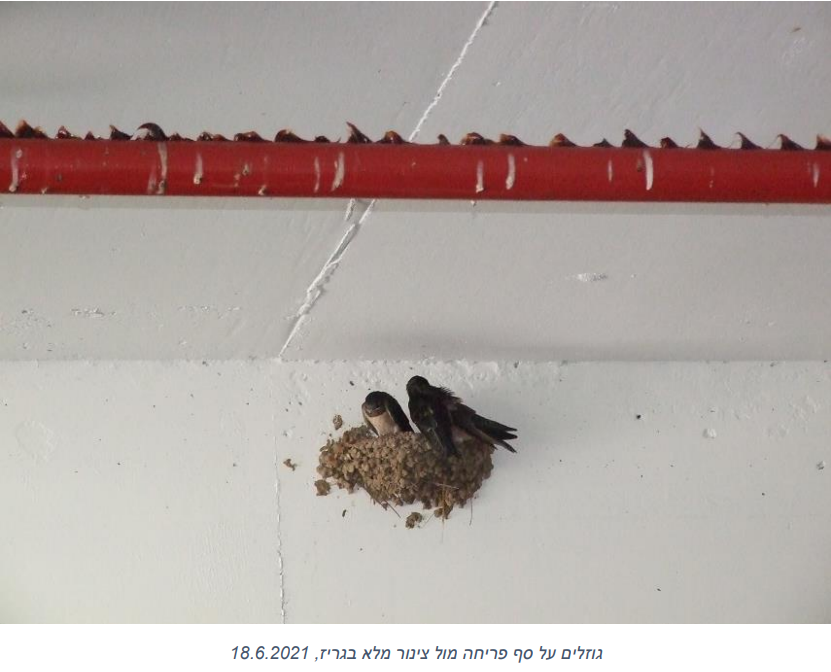
Taken from the report Grease Harms Swallows in the Rogovin Shopping Center in Yavne, 2021
School and community zoos
The Human and Animal Institute is working to eradicate a common phenomenon in various education systems: keeping animals in captivity under the stated pretext of educational purposes. The institute's staff has published academic material on the subject ("Respect in the School Zoo? Educational Implications of Students' Encounters with Captive Animals," 2019), created a comprehensive informational booklet (Relational Encounters: Rethinking the Encounter between People and Animals, 2022), testified before the Ministry of Agriculture ("Rethinking the Connections between Children and Animals"; "The Educational Significance of Students' Encounters with Captive Animals," 2020), and more. The institute's staff also disseminates messages against animal corners to the general public, including publications in the mass media.
The video won the animation category for children and youth at the Girona 36 Film Festival (2024)
As a practical mitigating solution to this problem, the Human and Animal Institute offers a Reciprocity Label for facilities where animals are kept, especially zoos in educational institutions. The Reciprocity Label project includes a personal training program for animal facility staff. The training is designed to protect animals already held in captivity and bring about practical improvements in their condition while improving the ongoing educational activities at the facility. The Reciprocity Label project includes achievable goals that are rarely implemented in practice nowadays, and it requires a deep familiarity with animals and their diverse emotional and social needs. The process began in the summer of 2022; two locations received the Reciprocity Label and are now used as training places for staff and students. Three additional locations are in the advanced monitoring process.

